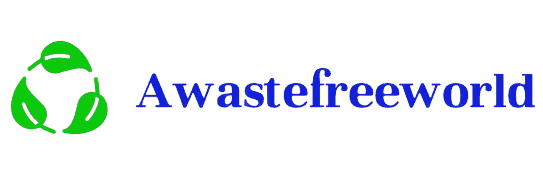Louisiana waste management depends on following federal, state, and local regulations. A major sector is oil and gas, with agriculture and tourism as others.
Other states have a multitude of challenges to face in efficient waste disposal and environmental protection, many of which are unique to their state. Complying with regulations allows the state to dispose of its waste appropriately while protecting ecosystems and communities there.
Federal and state regulatory frameworks
In Louisiana, waste management is regulated by federal statutes like the Resource Conservation and Recovery Act (RCRA) and the Clean Water Act (CWA), as well as state-specific regulations implemented by the Louisiana Department of Environmental Quality (LDEQ). It lays down norms for treatment, storage and disposal of different kinds of waste such as municipal solid waste (MSW), hazardous waste and industrial by-products.
The Resource Conservation Recovery Act (RCRA) is a federal law that specifies how hazardous and non-hazardous waste will be managed, including proper labeling and storage as well as disposal by the Environmental Protection Agency (EPA). Louisiana is authorized as a state under EPA law and is thus allowed to operate its own waste management programs with federal oversight, as long as they are equal or greater than those mandated by the EPA.
The requirements are managed at the state level under The Solid Waste Regulations overseen by LDEQ while different guidelines for landfill operations, recycling facilities and waste transportation regulated. Like many states, this prohibits Subtitle D of the RCRA from enforcement in Louisiana, which deals with non-hazardous waste (i.e., municipal solid waste), leachate collection systems, and monitoring protocols for landfills to protect groundwater from contamination.
Compliance with Hazardous Waste Management
Petrochemical plants, oil refineries and other manufacturing facilities in Louisiana generate large volumes of hazardous waste. In order to minimize environmental degradation and health hazards that might occur, it is necessary for companies to comply with hazardous waste regulations.
Generations of hazardous waste must be done in compliance with rigorous identification, handling, and reporting requirements. Depending on the volume of hazardous waste generated, facilities are classified as either small quantity generators (SQGs), or large quantity generators (LQGs). In both categories, of course, they need to maintain comprehensive documentation, use approved transporters and have final disposal at certified establishments.
Inspections, audits, and reporting systems mandated by LDEQ are also tools used by LDEQ to monitor compliance. Every two years, facilities must report on their generation and disposal of waste. Failure to comply can lead to payment of fines, penalties or shutting down operations.
Municipal compliance (non-hazardous waste)
Managing municipal solid waste is also a challenging area of regulatory compliance in Louisiana. It falls on local governments like lake Charles to make sure their waste collection and disposal systems comply with state and federal law. Landfills receiving MSW need to comply with site selection, operations and final closure regulations.
State incentives and community outreach programs promote recycling and composting programs. Louisiana has set recycling targets13 and reporting14 to measure progress towards minimizing landfill reliance. That makes urban areas comparatively better equipped to comply with recycling goals than rural communities.
Oil and Gas Waste Management
Louisiana, as home to the oil and gas industry, has opportunities and challenges when it comes to managing drilling waste, produced water and other secondary material.
The Louisiana Office of Conservation, along with LDEQ, governs specific waste management practices used in this industry. This includes appropriate storage and disposal of drilling muds, flowback and produced water, and contaminated soil. The construction and monitoring standards for injection wells, which are used to dispose of produced water, require a high standard of work in order to prevent groundwater contamination.
Challenges around enforcing and complying
Louisiana has strong waste management laws already, but enforcement is the issue. Limited resources, illegal dumping and lack of public awareness are among the contributing factors to compliance gaps. The waste collection and recycling infrastructure are underfunded in rural regions, making it harder for many city or local governments to fulfill necessary regulatory standards.
And illegal dumping continues to be a major problem, especially in poorer areas. To address the LAP, LDEQ has created programs such as surveillance cameras, hotlines for public reporting and increased fines for violators.
Transitioning to Sustainable Compliance
To boost compliance, Louisiana’s investing in tech and also its own people. Steps have also been taken to improve supervision through remote sensors, monitoring devices coupled with GPS tracking of waste shipments. By educating businesses and residents, campaigns increase understanding of their roles in regulation compliance.
The state is also considering using a public-private partnership model to pay for infrastructure upgrades and promotion of sustainable practices. For instance, the expansion of composting facilities and waste-to-energy projects will lessen dependence on landfills and also support objectives set by regulators.
Waste management compliance in Louisiana is established to protect the earth, public health and state economy. However, through reasonable laws, encouraging public ethics, and investing in the infrastructure of waste disposal like dumpster rental services for appropriate garbage disposal.
Efforts to improve compliance must be ongoing so that the state maintains its position as a model in responsible waste management with changing environmental and industrial needs.



